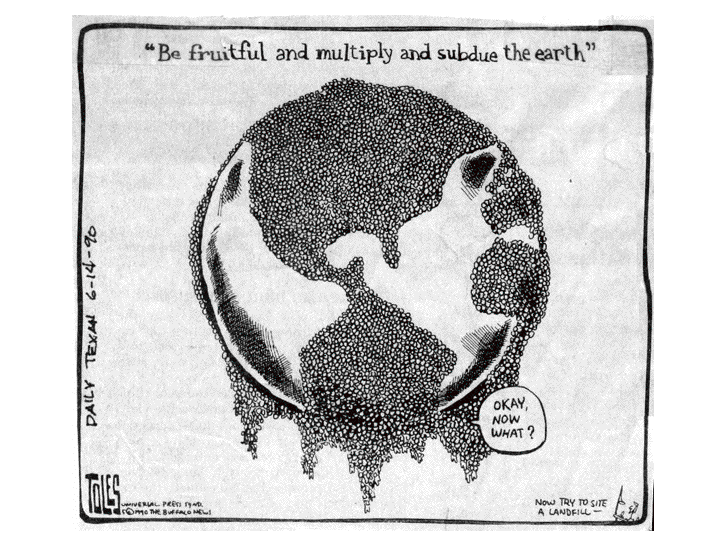 |
| Retrieved from this blog |
A few prominent phrases that appear to contradict one another are Genesis 1:26 and Genesis 2:15. Genesis 1:26 reads, "Then God said, 'Let us make mankind in our image, in our likeness, so that they may rule over the fish in the sea and the birds in the sky, over the livestock and all the wild animals, and over all the creatures that move along the ground'" (New International Version). This verse makes use of "rule over," an equivalent of Genesis 1:28's "dominion" or "subdue", to place humanity in a hierarchical position over that of animals and others living creatures in the world. If humanity (Adam and Eve) were God's most important creations, then it may logically follow that everything else in the world is not worthy of protection or keeping.
On the other hand, Genesis 2:15 reads "The LORD God took the man and put him in the Garden of Eden to work it and take care of it" (NIV). Other versions swap out these verbs for "tend and watch over it" (New Living Translation), "cultivate it and keep it" (New American Standard Bible), "work it and guard it" (International Standard Version), and "care for it and maintain it" (NET Bible). These verse, only a few after the ones above, appear to place humanity within its scene, not over it. Humanity has been given the divine charge of maintaining and caring for the Earth as another of God's creations. There are many more verses that address the relationship of humanity to nature, but these might be the best known.
 |
| Retrieved from this blog |
Respondents were asked about the apparent contradictions between these two verses in the study and to describe their meaning and compatibility. A frequent response was that people took "rule over" and other verbs of domination too literally, and it might better be translated as calling for stewardship, a kind and tender position of power that cares for the Earth. One respondent noted, "God has created us in His image, and it is this image we are to reflect in our dominion. The second verse describes what this Godly dominion can look like, tending and keeping a garden." For this respondent, the phrases are not contradictory, but complementary. Humanity can rule over animals but also tend to and take care of the Earth; a position of power does not have to be an oppressive one.

No comments:
Post a Comment